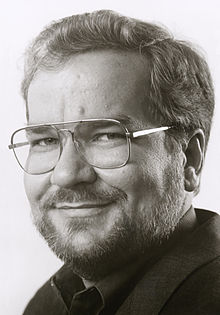
Phil Zimmermann
Phil Zimmermann is an iconic figure in privacy circles - the inventor of Pretty Good Privacy (PGP) - the most widely used email encryption in the world. His company, Silent Circle, are about to turn their attention to private calls, with Blackphone, a modified Android handset which can make encrypted calls from any country on Earth. Running PrivatOS, and equipped with privacy apps including encrypted SMS, it ships in June, priced $629.
How is the run-up to launch going?
I am having the time of my life. I am having a lot of fun with Blackphone - my whole company is - you can now whisper in someone’s ears from across the world, and no one can listen. I first attempted to make a phone for encrypted calls in 1995 - but I had to wait for the tech to enable it. I realised I had to wait for everyone to have broadband. We hope this device will have a big impact.
Can you really have a spy-proof phone?
The great thing with Blackphone is that you can whisper right across the world. Encrypted phone calls do work. In countries where there’s a lot of wire-tapping, this device will make a difference. But even if the encryption works, nothing is spy-proof. They can hide a microphone in your office if they really want to listen in.
People have been sceptical about whether encrypted voice calls will work - will Blackphone prove them wrong?
This is our core competency. I know what the crypto protocols are doing. Encrypted calls and texts do work. Government are using our technologies. Governments use it - special ops soldiers around the world use our technology - and they wouldn’t be allowed to if spy agencies knew how to break it.
Privacy has become a bigger issue in the past year - will consumers really change their behavior?
The problem is that people have to get up onto their hind legs and react. But as to switching from services such as Facebook and Google, which rely on user data for advertising, it’s hard to switch. But if it’s a service you’ve used for years, and you now know that they cooperate with security forces, what do you do? Say it’s a storage site where you keep your work. You can’t stop using it. You just know that it’s being read.
What makes you optimistic?
There is a need for this sort of product for business. In some countries wire-tapping is incredibly common - not just by the government, but by private individuals. In Brazil for example, a few thousand U.S. dollars is enough to pay someone at a telephone exchange to tap and record any phone calls you make - whether it’s to steal industrial secrets, or for espionage.
A Dutch phone company, KPN, is selling the gadgets to consumers alongside ordinary cellphones - is that a big change?
Historically phone companies have cooperated with governments when it comes to wiretaps - and that goes for every country on Earth. KPN selling Blackphone is someone saying, “No,” for the first time. The fact that a mobile carrier is offering our services and buying thousands of Blackphones makes me optimistic that other telecoms companies might refuse government wiretaps in future. For a company to ‘break ranks’ is a major departure.
Who is going to buy Blackphone?
There has been huge demand - many Fortune 100 companies have ordered them - and actually a majority of the Fortune 50. Some business conversations you don’t want to have via email or IM - voice is nuanced, it’s fast. When you need decisions, you use voice. And Blackphone lets you do that confidently.
Do you expect private individuals to buy the handset?
Anyone with power, or authority, or wealth, can be targeted for blackmail. People who are not spies need privacy just as much as those in the intelligence services. We are in the golden age of surveillance. Whoever wants it can enjoy total information awareness - from cameras which read number plates automatically, to who calls who, and what they say. If a politician is seen in a hotel with an attractive woman, facial recognition can pick him out.
You’ve fought for privacy for a long time - what’s made you most proud?
What amused me among the Snowden documents was the NSA boasting of how many things they had broken into - but they had never broken into anything I ever designed. I was even mentioned in a memo. It was research into new technology I was developing, and it was headed, ‘This can’t be good’. It warms my heart they have such respect for my work.
What do people need to do to regain some of their privacy?
Ordinary people need to get up on their hind legs and act. But the press has a responsibility to report privacy violations as stories. It has had an effect on politics - the fact that President Obama responded showed that it had struck. But the technology we have now means that it’s easy to steal all the data, then filter it afterwards, rather than sending someone to look for one specific piece of information.
Do you have any predictions for privacy in the future?
If there is a change in government, and a new group of people have access to this data, they will be able to attack their political enemies by “reaching into the past”. All of that data is not going away.




